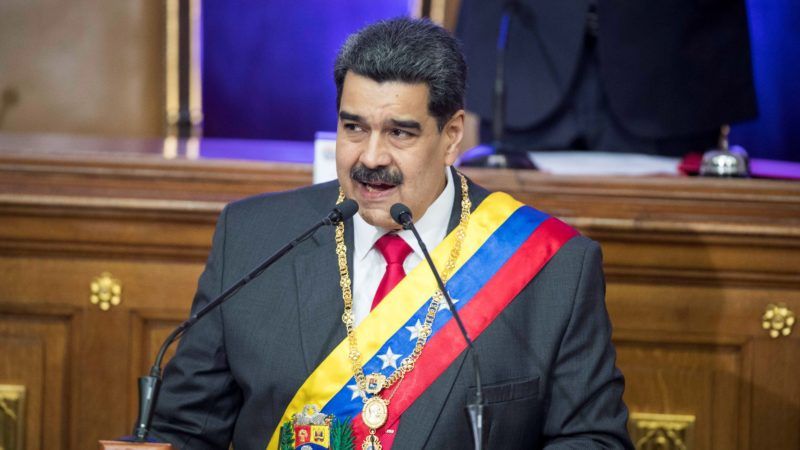Socialist Venezuela Proposes To Privatize Its Collapsing Oil Industry
Good luck with that.

Venezuela sits atop the world's largest proved reserves of petroleum, even bigger than Saudi Arabia's. In 2007, Venezuela's Bolivarian socialist government under President Hugo Chavez seized without compensation the assets of several private American oil production and service companies then operating in that country. In those heady days, global oil prices were ascending and would eventually peak in July 2008 above $132 per barrel. This oil price boom boosted Venezuela's GDP per capita to nearly $15,000 annually, thus bolstering Chavez's political popularity. But peak oil fears abated as they always do when demand draws forth more supply, causing prices to fall.
In the succeeding years, socialist efficiency has had its totally predictable effects on the Bolivarian Republic's oil industry—it's cratered. When Hugo Chavez came to power in 1999, Venezuela was producing more than 3 million barrels per day of crude. With the help of billions in loans from China, Chavez was able to sustain production at around 2.5 million barrels per day. In the past year, production has fallen below 1 million barrels per day, the lowest rate of production in 75 years. As a result, per capita GDP has fallen by nearly half in the past six years.
Now, the Chinese government is apparently becoming reluctant to throw good money after bad. As a consequence, Chavez's hapless successor, President Nicolas Maduro, is now reportedly proposing to sell a majority stake in, and give control of the country's state-owned oil company, Petroleos de Venezuela SA, to private international oil companies. This offer may be less than tempting to Big Oil since the Bolivarian Republic still owes billions to the oil companies whose property it seized 10 years ago.


Show Comments (65)